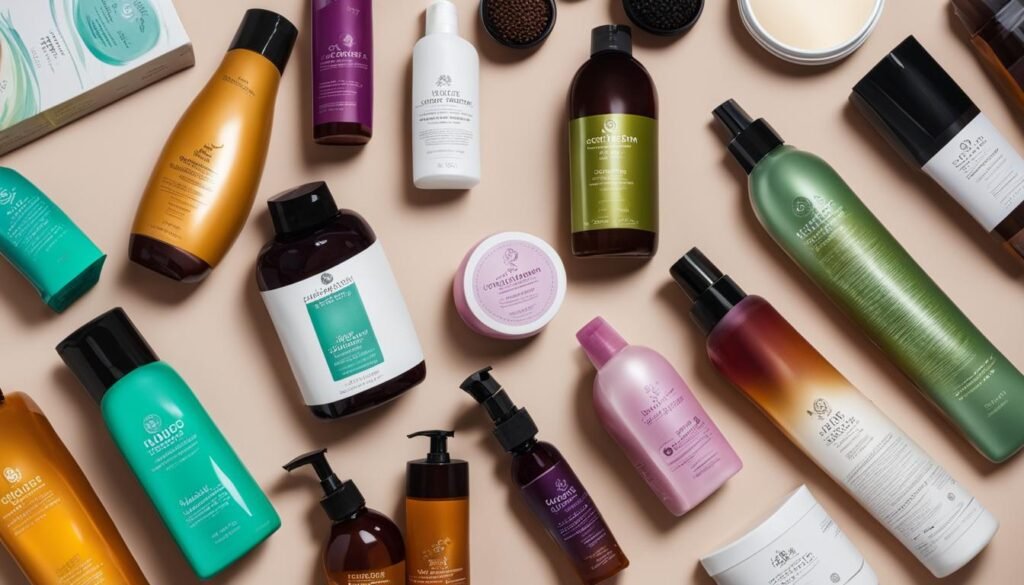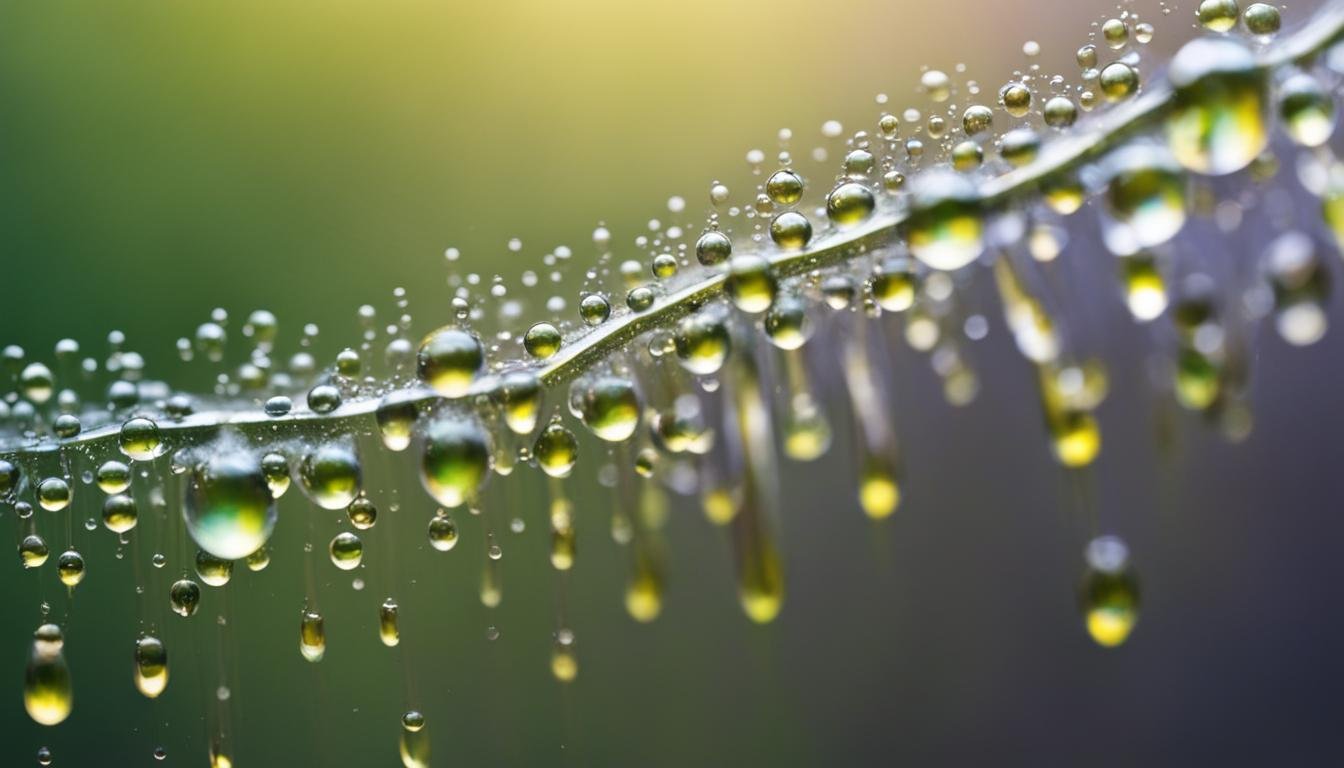Are you constantly battling with greasy hair, wondering why it’s becoming oily so quickly? Understanding the reasons behind excessive hair oil production and how to maintain a healthy scalp is key to managing greasy hair.
Excessive sebum production can cause hair to become greasy faster than usual. Factors such as incorrect hair washing techniques, using too much conditioner, using the wrong hair products, and constantly touching your hair can contribute to increased oil production. Hormonal changes, dietary changes, and environmental factors can also play a role in the speed at which your hair becomes greasy.
But don’t worry, there are solutions to manage and prevent greasy hair. By maintaining scalp health and finding the right hair care routine, you can achieve healthier-looking, less greasy locks.
In the following sections, we will explore common mistakes in hair washing, factors affecting hair oil production, and valuable hair care tips to manage greasy hair. We will also discuss the importance of choosing the right hair products and when it might be necessary to seek professional advice from a dermatologist or hair specialist.
If you’re tired of dealing with greasy hair and want to regain control over your locks, keep reading to discover helpful tips and advice.
Common Mistakes in Hair Washing
When it comes to keeping your hair free from excess grease, proper hair washing techniques are crucial. Unfortunately, many people unknowingly make mistakes during this important part of their hair care routine. These mistakes can contribute to greasy strands and leave you feeling frustrated with your hair’s appearance.
Not scrubbing the scalp properly: One common mistake is not properly massaging and scrubbing the scalp while shampooing. The scalp produces oil, and if it’s not thoroughly cleansed, the excess oil can build up and make your hair appear greasy. So, make sure to spend enough time gently massaging your scalp with your fingertips while shampooing to remove any oil or product buildup.
Not rinsing out enough shampoo: Another mistake is not rinsing out enough shampoo from your hair. If shampoo residue remains in your hair, it can weigh it down and contribute to a greasy appearance. Be sure to rinse your hair thoroughly, making sure no traces of shampoo are left behind.
Using too much conditioner: Conditioning your hair is important for keeping it hydrated and manageable. However, using too much conditioner or applying it directly to the roots can leave a residue and make your hair look greasy. Instead, focus on applying conditioner to the mid-lengths and ends of your hair, where it’s needed the most.
Applying conditioner incorrectly: Even if you’re applying the right amount of conditioner, applying it incorrectly can still lead to greasy hair. Avoid applying the conditioner directly to your scalp as it can weigh down your roots and make them appear oily. Instead, start applying the conditioner a few inches away from your scalp and work it through the lengths of your hair.
To prevent greasy hair, it’s crucial to follow proper hair washing techniques and choose the right products for your hair type. By avoiding these common mistakes, you can keep your hair looking fresh and grease-free.
Factors Affecting Hair Oil Production
Several factors can contribute to greasy hair by affecting the production of hair oil, also known as sebum. Understanding these factors and their impact on scalp health is crucial for managing and preventing greasy hair.
Hormonal Changes
Hormonal fluctuations during puberty, pregnancy, and menopause can lead to increased sebum production, resulting in greasy hair. The sebaceous glands, which produce sebum, are controlled by hormones, and any imbalance can disrupt the oil production process.
Dietary and Lifestyle Changes
What you consume can directly affect the oil production in your scalp. Diets high in saturated fats and sugars can stimulate excess sebum production, contributing to greasy hair. Additionally, certain lifestyle factors like high levels of stress, inadequate sleep, and smoking can impact hormone levels and, consequently, sebum production.
Environmental Factors
The environment can also influence the oil production in your scalp. Changes in climate or seasons can affect the sebaceous glands, leading to increased sebum secretion. Humid weather, for example, can stimulate the glands, resulting in greasy hair.
To prevent greasy hair, it’s essential to maintain scalp health and address the underlying reasons for excessive oil production. By implementing proper hair care practices and understanding these factors, you can effectively manage greasy hair and maintain a healthy scalp.
Choosing the Right Hair Products
Using the wrong hair products can contribute to greasy hair. Heavy conditioners or styling products can weigh down the hair and cause excess oil production. To prevent greasy hair, it’s important to choose hair products that are suitable for your specific hair type.
One key product to consider is a clarifying shampoo. These shampoos are designed to remove product buildup and excess oil from the hair and scalp. By incorporating a weekly clarifying shampoo into your hair care routine, you can help prevent greasy hair and keep your scalp refreshed.
Key Points:
- Choosing hair products suitable for your hair type helps prevent greasy hair.
- Consider adding a clarifying shampoo to your hair care routine to remove product buildup and excess oil.
- Avoid heavy, leave-in conditioners that can weigh down the hair and contribute to greasiness.
Remember, finding the right hair products is crucial in maintaining a healthy hair care routine and preventing greasy hair.

Hair Care Tips to Manage Greasy Hair
To effectively manage and control greasy hair, incorporating the right hair care tips into your routine is essential. By following these simple strategies, you can maintain a clean, fresh-looking mane without excessive oiliness.
1. Reduce Hair Washing Frequency
Believe it or not, washing your hair too frequently can actually stimulate your scalp to produce more oil, leading to greasy hair. To combat this, try reducing the frequency of your hair washing to every other day or every few days. This allows the natural oils produced by your scalp to balance out, preventing the overproduction of sebum. However, if you have an active lifestyle or your hair gets visibly dirty or sweaty, it’s still important to clean it regularly.
2. Incorporate a Clarifying Shampoo
A clarifying shampoo is a great addition to your greasy hair routine. It helps to remove excess oil, product buildup, and impurities from your hair and scalp. Consider using a clarifying shampoo once a week to keep your roots fresh and prevent greasiness. Be sure to follow the instructions on the product and rinse thoroughly to avoid any residue.
3. Apply Conditioner Strategically
Using conditioner is important for maintaining healthy hair, but applying it all over your scalp can weigh down your hair and lead to greasiness. Instead, focus on applying conditioner only to the mid-lengths and ends of your hair, where it’s needed the most. This helps to keep the roots free from excess product and prevents them from becoming greasy too quickly.
4. Avoid Excessive Brushing and Touching
Brushing your hair excessively or touching it frequently throughout the day can further distribute the natural oils produced by your scalp and make your hair look greasier. Limit brushing to necessary times, such as when styling or detangling, and avoid touching your hair unnecessarily. By minimizing physical contact, you can help manage greasy hair and extend the time between washes.
By utilizing these hair care tips, you can effectively manage and control greasy hair. Remember to experiment with different strategies and find what works best for your individual hair type and needs. With patience and consistency, you’ll be able to maintain a fresh, oil-free look that lasts throughout the day.
Seeking Professional Advice
If you’ve tried numerous remedies and made adjustments to your hair care routine but still struggle with greasy hair, it may be time to seek professional advice. Consulting with a dermatologist or hair specialist can provide valuable insights into preventing greasy hair and maintaining your hair’s health.
These experts can assess your scalp health, hormone levels, and overall hair condition to provide personalized recommendations tailored to your specific needs. By identifying any underlying causes of excessive oil production, they can help you implement effective strategies to prevent greasy hair.
Don’t hesitate to reach out to a professional if you feel that your greasy hair is persisting despite your best efforts. Their guidance can make a significant difference and set you on a path to healthier, more manageable hair.
